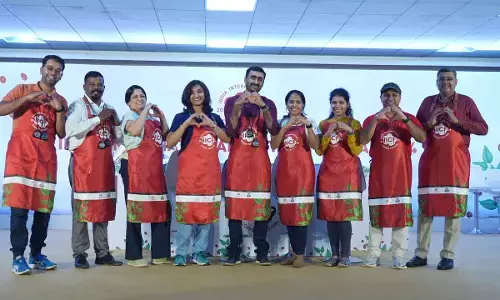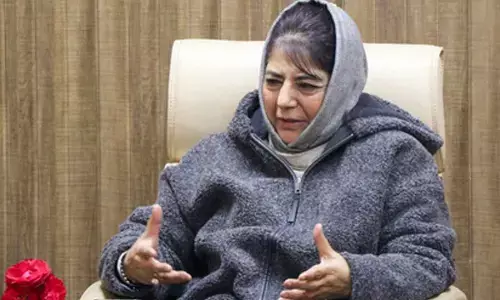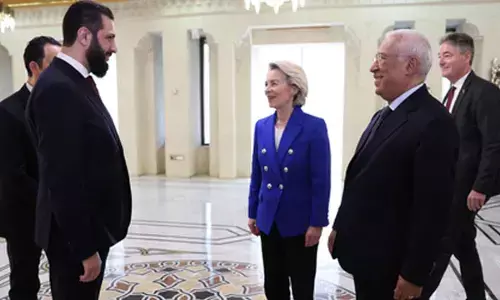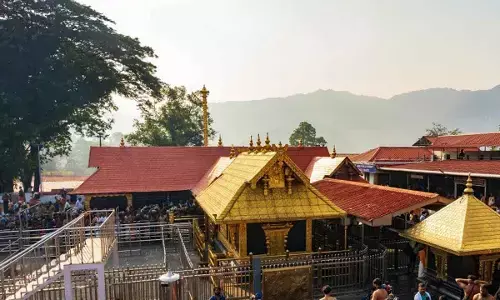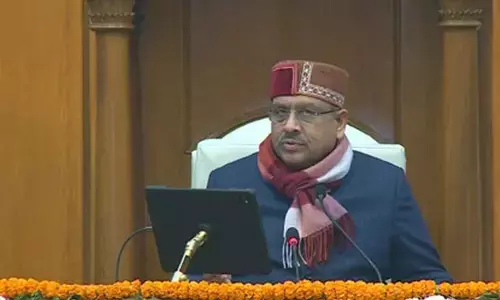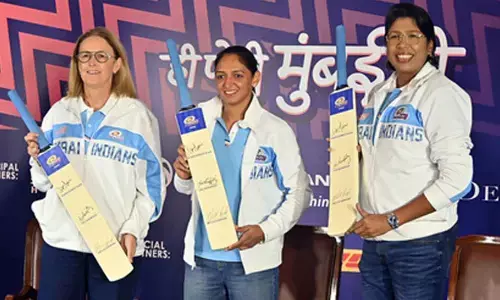India's political history resembles dynastic democracy
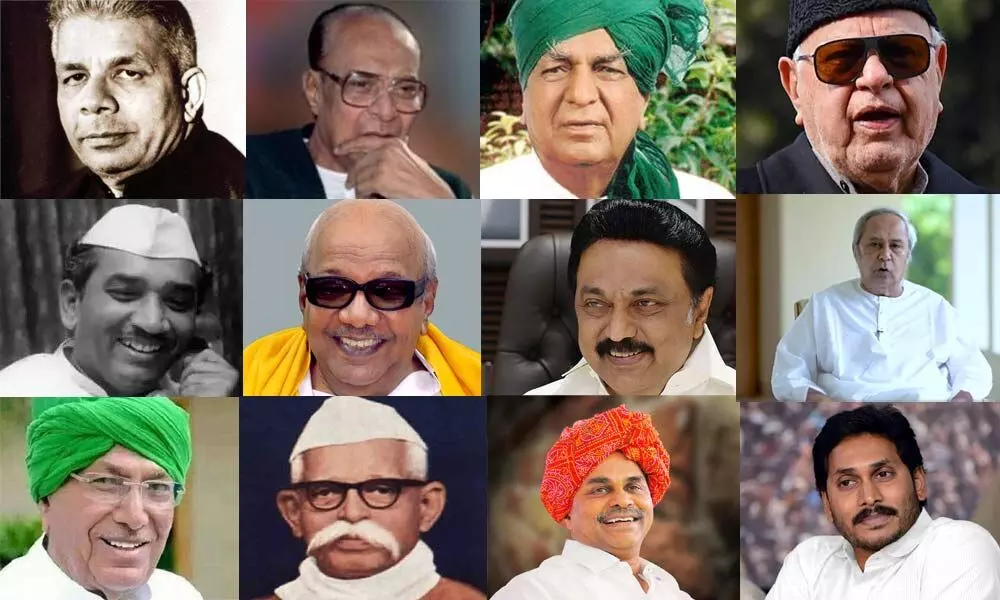
India's political history resembles dynastic democracy
Though India calls itself as the biggest Parliamentary Democracy, history indicates that it has been more of a dynastic democracy
US is known as presidential democracy and Britain as parliamentary democracy. Though India calls itself as the biggest Parliamentary Democracy, history indicates that it has been more of a dynastic democracy. Dynastic politics always played a major role and had its footprint since Independence.
When we talk of dynastic politics, people generally talk about Congress party starting with Pt Jawaharlal Nehru as the first prime minister then his daughter Indira Gandhi and then her son Rajiv Gandhi. But the concept of 'Me and My Family' has been there in every state since Independence.
If one digs into the history of dynastic politics, from Kashmir to Chennai, almost every state had dynastic rule. Some may argue that if children of lawyers and doctors can follow their parents' footsteps into a career, why should one object if the progeny of politicians take up the same trade.
Even Rahul Gandhi had once made such a comment. Let it be clear that here the issue is different. There is nothing wrong if the children of politicians follow the footsteps of their parents in career. But what is irksome is that dynastic politics is becoming more of a norm than exception.
Without malice towards anyone, let's have a quick glance of dynastic democracy in India. The Congress leader and freedom fighter Ravishankar Shukla became the first chief minister of the reorganised Madhya Pradesh on November 1, 1950. He died on December 31, 1956. Later his son Shyama Charan Shukla also of Congress party became the chief minister of MP for three terms.
Let's go over to Goa, a tiny emerald land on the west coast of India, the 25th state of the Union states of India, was liberated from Portuguese rule in 1961.
Dayanand Balkrishna Bandodkar who was popularly known as Bhausaheb Bandodkar was the first Chief Minister of Goa. He ruled the state till August 12,1973. The same day his daughter Shashikala Kakodkar was appointed as the Chief Minister of Goa, Daman and Diu. She was not new in politics but the responsibilities at the age of 38 were too much for her. She was in power till being ousted by the split within Maharashtrawadi Gomantak Party in 1979.
Biju Patnaik who became the chief minister of Odisha on 23 June 1961 served the state for 15 years. He proved to be different from other CMs. Biju was well trained in flying aircraft and played an important role in saving Kashmir when Pakistan raiders attacked Kashmir. He flew many sorties on his Dakota from Safdurjung Airport in Delhi on October 27, 1947 and brought 17 soldiers of 1-Sikh regiment commanded by Lt Col Dewan Ranjit Rai. He flew low on the airstrip twice to ensure that no raiders were around.
Then we had Sheikh Abdullah — popularly referred to as 'Sher-e-Kashmir' (Kashmir's lion) — who founded the National Conference before going on to serve as the prime minister of Kashmir and later as the chief minister after its accession to India. He became the chief minister in 1965 and remained in the office till 1982 when he died. His son Farooq Abdullah succeeded him and served as the Chief Minister of Jammu and Kashmir on several occasions since 1982. Farooq's brother-in-law — Ghulam Mohammad Shah — served as the chief minister in the 1980s. The family's ties to the top chair in the state do not end there. Later in 2008, Farooq's son became the chief minister. 2008.
Jammu and Kashmir also saw another dynastic rule by the Muftis. Mufti Mohammad Sayeed, the founder of the People's Democratic Party (PDP), and his daughter Mehbooba Mufti served as the state's chief minister.
Uttar Pradesh which has special place in Indian politics had seen stalwart in the Indian politics, Hemavati Nandan Bahuguna becoming the CM. When the state got bifurcated, his son Vijay Bahuguna became the chief minister of Uttarakhand. Another family that ruled the state was Mulayam Singh Yadav followed by his son Akhilesh Yadav.
Akin to UP politics the Congress leader YS Rajasekhara Reddy became the chief minister in undivided Andhra Pradesh and after bifurcation in 2019 his son YS Jagan Mohan Reddy, joined an elite club where a Chief Minister's son has gone on to become a Chief Minister.
Maharashtra too had seen father and son becoming chief ministers. Shankar Rao Chavan and his son Ashok Chavan ruled the state.
Down South, in Tamil Nadu Dravida Munnetra Kazhagam (DMK) patriarch M Karunanidhi served for five terms (not consecutively) as chief minister and now his son Muthuvel Karunanidhi Stalin is the current CM.
Karnataka, had seen the rule of H D Dewe Gowda and his son HD Kumaraswamy. In North East, Arunachal Pradesh CM Pema Khandu's father Dorji Khandu, who died in a helicopter crash in 2011, was also the chief minister.
In Jharkhand, Shibu Soren was the chief minister for three terms while Hemant Soren, a two-term CM, began his current stint in December 2019. Haryana was no different. Devi Lal and his son Om Prakash Chautala dominated the political scenario as chief ministers. In Punjab the dynastic democracy was slightly different. Prakash Singh Badal was the CM and his son Sukhbir Singh Badal became the Deputy CM.








